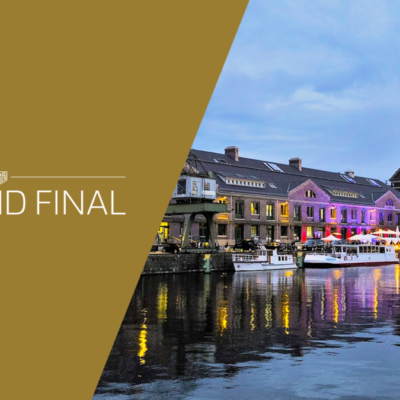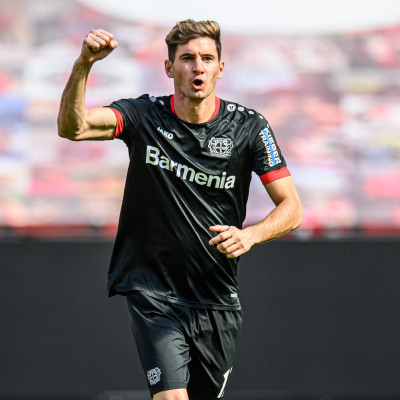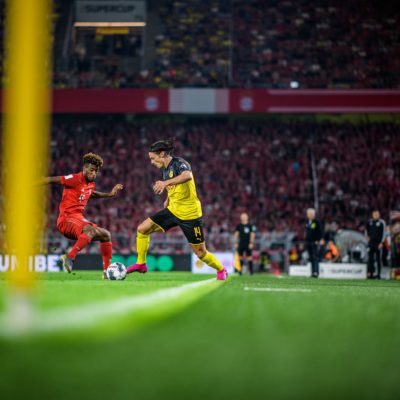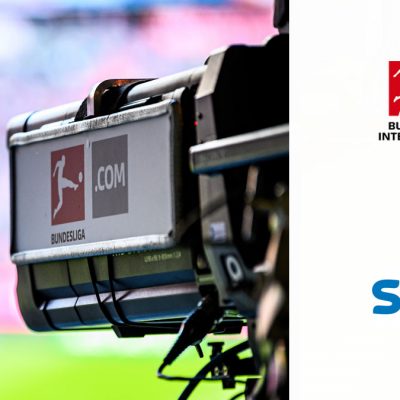Between 16-23 October the Bundesliga welcomed a delegation from South African community development initiative Safe-Hub to Germany as part of a project designed to inspire coaches from both countries, while creating a platform for intercultural exchange and learning.
SUMMARY
- Social Enterprise AMANDLA links up with Bundesliga International, DFL Foundation, TSG 1899 Hoffenheim and SV Werder Bremen
- Tour included stops in Berlin, Bremen and Hoffenheim
- Sports, intercultural and educational knowledge exchanges delivered to South African and German coaches
This activity is part of a strategic partnership with the international social enterprise AMANDLA which, through its Safe-Hubs, creates safe and inclusive spaces in South Africa, Germany and the U.S that bring together the power of football and learning to empower youth and change lives.
Their coaches have been tasked with promoting a system of values aimed at encouraging young kids to develop key social competencies for their daily life, enabling them to become responsible young adults who contribute positively to their society. Germany’s reputation as home to unique clubs with strong community connections and the Bundesliga’s world-class player development system made this the perfect environment for the visiting guests.
As part of an eight-day journey, the group joined their German counterparts for a cultural tour through Germany’s capital, Berlin, and participated in a range of workshops hosted by SV Werder Bremen and TSG 1899 Hoffenheim in the clubs’ home towns. The participants also experienced the Bundesliga’s famous stadium atmosphere and took a deep-dive into German traditions and cuisine in a wide range of accompanying activities.
Speaking about this, Bundesliga International CEO Robert Klein said: “The Safe-Hub is a particularly inspiring project that shares many of the values of our league, which is why we’re committed to working alongside AMANDLA, SV Werder Bremen and TSG 1899 Hoffenheim to empower hundreds of children and young adults in South Africa.” He continued: “In addition to the coaching sessions provided by our clubs, we hope that by giving them a taste of ‘Football As It’s Meant To Be’ they have gained invaluable knowledge and experience that will help them continue their own personal development and as a result encourage positive life choices that inspire future generations in their communities.”
Last January SV Werder Bremen visited one of the Safe-Hubs in South Africa during their winter training camp. Werder Bremen CEO Klaus Filbry recalled his memories of that occasion: “Before we visited the Safe-Hub we didn’t know how the team would react. But when the team came back that day, we could see in their eyes that it was one of the most memorable and inspiring days during their time in South Africa. It created such a strong emotional connection with the players that we wanted to continue helping the project. That’s why we supported the ‘Train-the-Trainer’ workshop in Germany.”
TSG 1899 Hoffenheim’s Head of International Business Development and Head of Football School, Sebastian Bacher, added: “For many years we have been increasingly active and involved in developmental initiatives through football in Africa. It is important for us to find common value partners to build on that and increase the impact of sports projects using football as a driver for education and development on and off the pitch. In addition to that, our first international Football School Camp and Coaching Course was held in Johannesburg in 2017. The fantastic work done at the AMANDLA Safe-Hubs in Johannesburg and Cape Town plus their approach and curriculum fit very well with our club’s philosophy. We were very happy to host all of those from the project – Fanelwa, Yanga, Thato, Afika and Phillip, in Hoffenheim and learn from each other, introduce them to our club, our mindset and what we do from the grassroots to the professional level.”
Safe-Hub Programme Expert, Yanga Gcilishe, was one of this year’s participants. He said: “The exchange and partnership with Bundesliga International and the clubs is so important to us because it inspires kids to make the right choices in life. Only a few years ago I was one of those kids. At the same time, South Africa and its people are very special and have a unique approach towards football, which is why the visit to Germany was a process of learning and exchange on both sides.”




